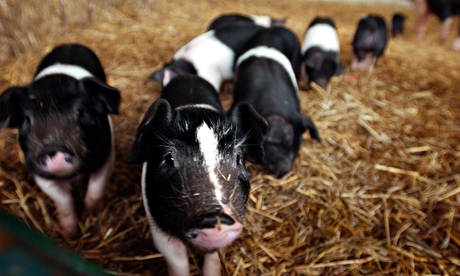Using rolling green hills and picturesque cows in marketing does little to tell consumers about the journey from farm to fork
 A buffalo walks slowly through the fog of the shower area, while several others vie for position under giant roller massagers. Their diet is purely organic, grown on Tenuta Vannulo Organic Farm's 100 hectares of land and fertilized by buffalo manure. The animals eat when they want, are milked when they want, and, as a result of their stress-free lifestyle, this buffalo milk is some of the most valuable in all of southern Italy. Every drop of it is sold on-site at the ranch in the Cliento region near Naples, direct to consumers as delicious mozzarella balls, exquisite pistachio ice cream, and rich cream-filled cannolis.
A buffalo walks slowly through the fog of the shower area, while several others vie for position under giant roller massagers. Their diet is purely organic, grown on Tenuta Vannulo Organic Farm's 100 hectares of land and fertilized by buffalo manure. The animals eat when they want, are milked when they want, and, as a result of their stress-free lifestyle, this buffalo milk is some of the most valuable in all of southern Italy. Every drop of it is sold on-site at the ranch in the Cliento region near Naples, direct to consumers as delicious mozzarella balls, exquisite pistachio ice cream, and rich cream-filled cannolis.
"They are incredibly intelligent creatures and learn really fast," says farm tour guide, Daniel Aleman Lucker. Lucker worked in the stables with the buffalo for ten months before turning tour guide for the facility, which now hosts 15,000 visitors each year.
But the 600 buffalo of Vanullo are also milked in robotic boxes. They are bred to have just the right-sized teats for the job and stay for nine months in a concrete-lined facility. Feed comes to them pre-cut and pre-mixed in troughs, and the animals graze on actual fields for only the three months a year in which they are not producing milk. A single human being oversees the entire operation each day.
In other words, Vanullo is seemingly a ranch full of contradictions.
"That is not at all what I thought an Italian, organic ranch would be like," said a young woman who visited Vanullo from Gustolab, the food and culture studies institute in Rome, where I taught a seminar this June. "I thought there would be rolling hills, and the buffalo would graze on green grass."























